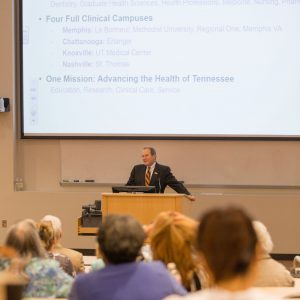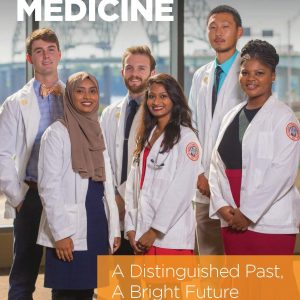According to the Alzheimer’s Association, an estimated 5.7 million Americans of all ages are living with Alzheimer’s dementia in 2018. While Alzheimer’s disease accounts for 60 to 80 percent of cases, vascular dementia is the second most common dementia type. Francesca-Fang Liao, PhD, professor in the Department of Pharmacology at the University of Tennessee Health… Read More
Obesity, the official journal of The Obesity Society, has selected two papers as Editors’ Choice articles for its October 2018 issue. The Editors’ Choice articles are hand-picked by the journal’s editors and both papers focus on obesity intervention research done by researchers at University of Tennessee Health Science Center (UTHSC) for active duty military personnel… Read More
Check out the latest issue of the UTHSC Medicine Magazine. In this issue you’ll meet the new dean for the College of Medicine, Dr. Scott E. Strome, and learn about his vision for the college; discover how our students are helping the global and local community, and learn about some of our illustrious alumni.








